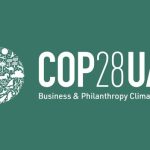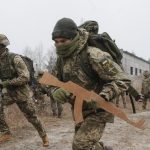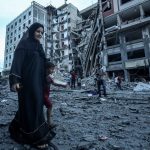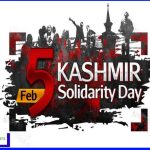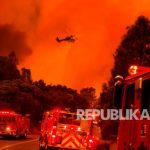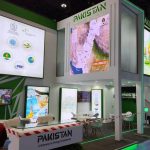Environmental Degradation:-A Project Fueling Community Conflict
By Razak Khatti /Photo credits: Iqbal Haider Sheedi
Large-scale development projects funded by international financial institutions often leave local communities environmentally, economically, and politically shattered. A glaring example is the Left Bank Outfall Drain (LBOD) project, which discharges saline water into the sea along the borders of the Badin and Thatta districts. Two years ago, this project forced residents to stand armed against one another.
These were the same people who used to welcome the nomads of the Thar Desert in times of drought. And when the desert flourished with rain, they would visit Thar and receive the same hospitality in return. But now, they were in conflict: if one group’s demands were met, the other would be devastated. Political leaders from different districts, belonging to the ruling Pakistan People’s Party (PPP), opposed each other.
 After a month-long struggle to drain floodwaters from the fields, people from Badin and Tharparkar returned to their homes, rebuilding their houses and reclaiming farmland. Those accused of violent protests now face court hearings and are entangled in legal battles.
After a month-long struggle to drain floodwaters from the fields, people from Badin and Tharparkar returned to their homes, rebuilding their houses and reclaiming farmland. Those accused of violent protests now face court hearings and are entangled in legal battles.
Natural or man-made disasters affect hundreds of people, each with a unique story of suffering. But many of these stories never find a voice—reporters and platforms that can bring such pain to the attention of the public and policymakers are rare.
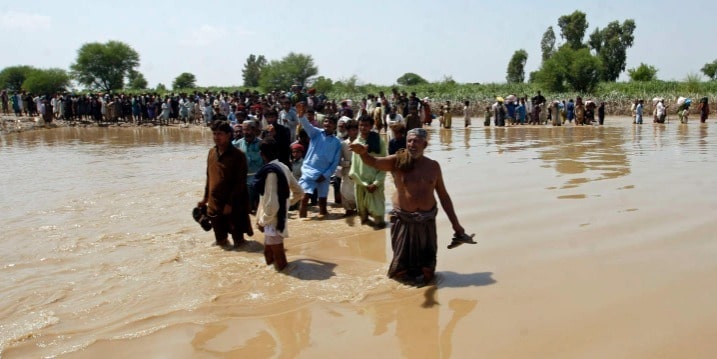
In my 56 years of life, with 40 of them spent in my hometown Badin, I have never seen such devastation before 1999. The first major rain-induced flood occurred in 2003, shortly after the LBOD’s construction. It hit the communities of Badin and Thatta hard, damaging coastal areas and exposing the flawed design of the World Bank-funded project.
The project not only harmed agriculture and aquatic ecosystems but also lacked any consultation with the local communities. It was either carelessness or a monumental mistake. The extent of the errors became evident when locals wrote to the World Bank, which led to the formation of an Inspection Panel. The panel acknowledged the design flaws, but no corrective actions were taken.
In a November 1, 2006 press release, the World Bank admitted these shortcomings. Edith Brown Weiss, chairperson of the Inspection Panel, stated that they had heard the voices of the affected people and witnessed the environmental degradation along the coast of southern Sindh.
After the 2003 floods, representatives from the affected communities in Badin, including Khadim Talpur, wrote letters to the World Bank. “In response to our requests, the World Bank sent an inspection panel. The panel members spoke with the affected people and later submitted their recommendations to the World Bank. However, the victims of the LBOD (Left Bank Outfall Drain) received no meaningful relief,” Khadim Talpur explained to me.

I have witnessed many such events throughout my career. However, in routine journalism, such in-depth stories often don’t make it to the pages of newspapers or the screens of TV channels, eventually fading from public memory.
When the 1999 cyclone struck Badin and Thatta, it devastated the southern regions, leaving dozens missing and villages flattened. After the catastrophe, philanthropists responded. One such donor brought trucks full of flour to Seerani, a coastal small town. During distribution, one man received a torn flour sack and worried it would spill. Left with no other choice, he wrapped the sack in his loincloth, disregarding his own dignity, because his children awaited food. Hunger, after all, makes shame irrelevant.
He further said that, for the first time since the 2022 floods, people protested not against the government but against one another for destroying their property and crops. “Such protests provide the perfect opportunity for governments to cover up their poor governance,” he remarked. “And the truth is, the government fully exploited these protests to its advantage,” Talpur added.
The origins of the LBOD project trace back to the 1970s when the idea of draining the saltwater from four districts—Nawabshah, Sanghar, Mirpur Khas, and Badin—was conceived. Non-local personnel were allotted lands in these areas. But the LBOD’s failure lies in poor planning and corruption. According to Aziz Dero, president of the Tail-End Farmers’ Association and a former deputy district Nazim Badin, during Musharraf’s era, the flawed design blocked natural water flows, ruining farmland in Badin, Tando Bago, and parts of Tharparkar.
“The damage caused by the LBOD might never be fully addressed,” said Dero. “But even now, the sugar mills and factories of Nawabshah, Sanghar, and Mirpur Khas continue to dump industrial waste into the drain, polluting agricultural lands. The saline water pumped from tube wells also ends up in the LBOD, causing further soil degradation.”
One major oversight during the project’s design was its failure to account for Indo-Pak relations. The water discharged through the LBOD flows into the Shakoor Lake, which lies partly in Pakistan and partly in India. With a capacity of 4,500 cusecs, the LBOD channels water into the KPOD (Kadhan Pateji Outfall Drain), which splits, directing water toward Shakoor Lake and the sea.
However, the reverse flow of saline water from the sea during most of the year has severely affected agriculture. Dero explained that when India restricted water inflow from Shakoor Lake, it forced all the saline water from the LBOD into Pakistani lands, ruining fertile fields once known for their greenery.
The impact of the LBOD became glaring again during the 2022 monsoon floods. For two decades, the affected communities stood united, supporting one another. But this time, the community was divided. People, who once fought side by side against calamities, now protested against each other.
Haroon Gopang a Reporter of KTN TV Badin stated that the people of Tando Bago Union Council expressed that this breach should be closed, but the Arbabs of Thar believed that if the breach was closed, it would increase water pressure in their areas, damaging the Thar Coal Road and Wango. The people of Jhudo, Tando Jan Muhammad, and others were in favor of the demands of the Badin people. They wanted the LBOD to be cut at RD-211, while the Arbabs opposed the cutting at 211. Following this, people from both districts protested against each other at the convergence of Badin and Tharparkar. This protest began on September 19 and continued for six days. To prevent the protest from becoming violent, cases were registered against 80 individuals, with 30 named, who are still facing court hearings.
Muhammad Latif Rahemoon, a resident of Kundrri village near Shakoor Lake, described the slow encroachment of saltwater. “Years ago, this land was called Vilaso—green and fertile. Now, saltwater has turned it barren. The waste flows unchecked into our villages, spreading to Barr Jo Doro and Sheikh Kiryo Bandari,” he lamented.
Hussain Jarwar, CEO of Indus Consortium, stated that a critical flaw in the design phase of the LBOD was the failure to engage with local communities. Additionally, the project blocked natural water pathways and ignored Disaster Risk Reduction (DRR) principles, both by the World Bank and its consultants. “Unless the LBOD is redesigned, it will continue to inflict damage on Badin’s local economy, trigger recurring disasters, and fuel conflicts among neighboring communities,” Jarwar emphasized.
Despite government interventions, the regulator built at RD-211 with eleven gates to channel water toward the sea and Shakoor Lake offers little reassurance. Climate change is causing more frequent and intense rains, and the LBOD’s 4,500-cusec capacity is no longer sufficient.
The critical question remains: When the LBOD was designed, did environmental experts and engineers anticipate that 35 years later, the project would degrade agricultural lands and corrupt the social fabric of communities? Instead of holding the responsible parties accountable, affected people are now pitted against each other.
These outcomes violate both global and local ethical principles. It’s time we reflect on the lessons of the LBOD and work towards restoring both nature and harmony within these communities.
—————————————————
Abdul Razak Khatti, a senior journalist in Islamabad Pakistan, closely monitors Pakistan’s environmental and parliamentary issues. He can be reached at. email.razak.khatti@gmail.com







